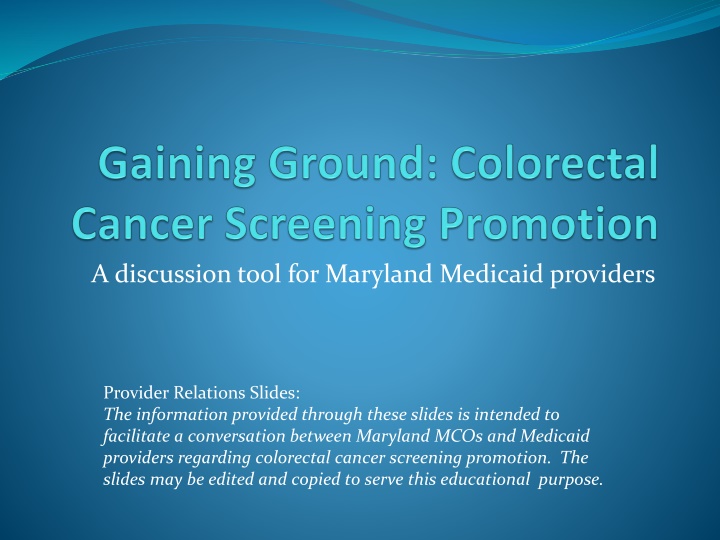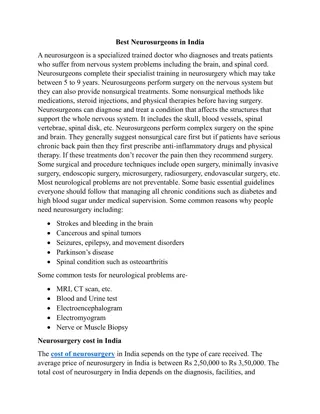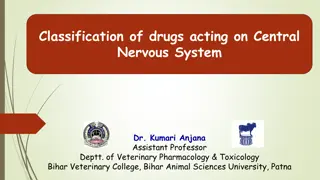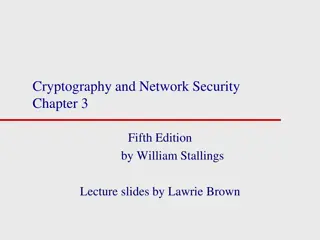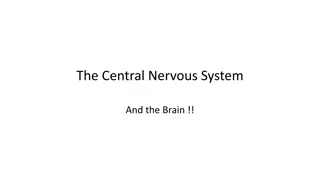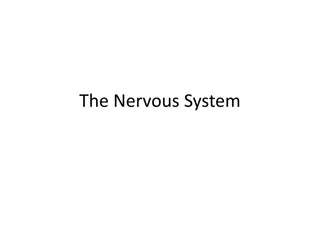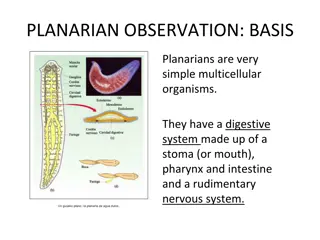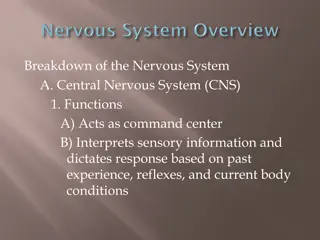Neuropathology Practical: Central Nervous System Block Overview
This collection showcases images and information related to neuropathology practical sessions focusing on the central nervous system. Explore normal anatomy, CNS cells, selected diseases, and a case study of a 43-year-old female with a suspected meningioma.
Download Presentation

Please find below an Image/Link to download the presentation.
The content on the website is provided AS IS for your information and personal use only. It may not be sold, licensed, or shared on other websites without obtaining consent from the author.If you encounter any issues during the download, it is possible that the publisher has removed the file from their server.
You are allowed to download the files provided on this website for personal or commercial use, subject to the condition that they are used lawfully. All files are the property of their respective owners.
The content on the website is provided AS IS for your information and personal use only. It may not be sold, licensed, or shared on other websites without obtaining consent from the author.
E N D
Presentation Transcript
A discussion tool for Maryland Medicaid providers Provider Relations Slides: The information provided through these slides is intended to facilitate a conversation between Maryland MCOs and Medicaid providers regarding colorectal cancer screening promotion. The slides may be edited and copied to serve this educational purpose.
Where We Currently Stand: In Maryland: Colorectal cancer (CRC) is the second leading cancer killer (following lung cancer). CRC screening detects cancer early, and, in the case of colonoscopy, can prevent cancer from developing Several recommended screening tests are available to screening-eligible individuals
Recommended CRC Screening Tests & Intervals The best test is the one that gets done. Recommended Colorectal Cancer Screening Intervals For Average-Risk Persons, aged 50 - 75 Fecal Occult Blood Test (FOBT) Fecal Test Sigmoidoscopy Colonoscopy Immunochemical Test (FIT) Frequency Annually Annually Every 5 years Every 10 years Digital Rectal Exam (DRE) is not an appropriate procedure for colorectal cancer screening.
Where We Currently Stand: (continued) In Maryland: 69.1% of Maryland adults between 50 and 75 years old have been screened for CRC as recommended. This means that nearly 1 in 3 adults has not been screened for this preventable cancer. Screening rates among some sub-populations are significantly lower than the state rate. For example, only 32.7% of Medicaid recipients were up-to-date with screening in 2014.
Gaining Ground Among Your Clients Statewide, healthcare providers are working to increase CRC screening rates. Best practices include: Health system practices to support screening: Written office policy and procedure on CRC screening guidelines and referral (can be grouped with other common cancer screenings such as CBEs, mammograms, and Pap tests). Protocols and standing orders to formalize the screening and follow-up process Standard use of pre-visit planning and flag systems Routine data review and targeted quality improvement
Gaining Ground Among Your Clients Office-wide shared responsibility and accountability for CRC screening rates. Spread the responsibilities and successes among the staff that you have available within your organization. For example: Front desk staff: Distribute cancer screening questionnaire to all age- eligible clients Medical assistants and nurses: Flag records of patients who are not up- to-date to trigger screening conversations Providers: Verbally recommend appropriate screening and use support staff to help ensure patient follow-through Referral specialists and financial aid clerks: Help patients make recommended appointments, keep referral sources up-to-date Patient navigators and health educators: Identify and overcome barriers for patients who are unable to complete screening on their own, educate every client regarding the screening recommended to them
Getting Started Some questions and actions to take: What is working for your office in other preventive health areas? What is the CRC screening rate among your clients? Map the CRC screening referral process in your office. Develop or refine policies/procedures around CRC screening and standardize them. Implement small tests of change/Plan, Do, Study, Act cycles to seek improvement in opportunity areas. Call upon your available resources for patients and healthcare practices (see Slides 9 and 10).
Getting Started (continued) Consider joining the 80% by 2018 colorectal cancer screening initiative. 80% by 2018 is a movement in which hundreds of organizations have committed to eliminating colorectal cancer as a major public health problem and are working toward the shared goal of reaching 80% screened for colorectal cancer by 2018. Review the pledge and sign to demonstrate your office s commitment: http://nccrt.org/tools/80- percent-by-2018/
Patient Assistance Once referred for colonoscopy, insured patients (including Medicaid recipients) should contact the colonoscopy provider to: Confirm the provider accepts the patient s insurance Schedule a consultation or procedure appointment Uninsured and underinsured patients and those who need additional assistance in order to follow through with recommended screening can be referred to local CRC screening programs for help: Uninsured and underinsured low income patients may be eligible for screening and patient navigation (PN) services (e.g. identifying and overcoming patient barriers to screening, appointment scheduling, education, etc.) at no cost to them Insured low income patients may be eligible for PN services at no cost to them See Local CRC Screening and PN Resource List for contact information
Tools and Resources for Your Office Tools and resources such as small media (e.g. brochures, posters, etc.), educational resources, and process and quality improvement assistance, contact: Your Managed Care Organization liaison The Maryland Department of Health and Mental Hygiene s Colorectal Cancer Control Program (1-800- 477-9774).
